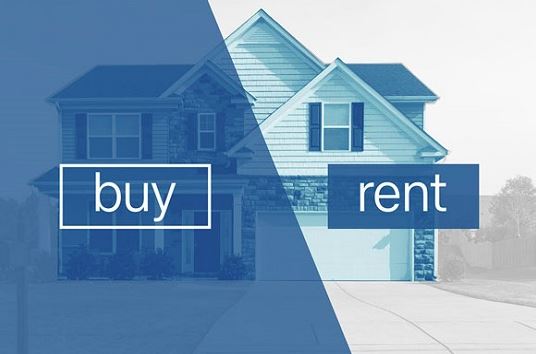The decision between renting and buying a home is a major financial and lifestyle choice. Both options have their own set of advantages and disadvantages. Here are the pros and cons of renting and buying to help you make an informed decision:
Renting vs. Buying: The Pros and Cons of Each Option
Renting:
Pros:
- Flexibility: Renting offers more flexibility since leases are usually shorter-term commitments. This is beneficial for those who frequently relocate or have uncertain living arrangements.
- Lower upfront costs: Renting typically requires less upfront costs compared to buying a home. There is no need for a large down payment or expenses associated with homeownership, such as property taxes or maintenance.
- Maintenance and repairs: One of the advantages of renting is that the landlord is responsible for maintenance and repairs. This can save you both time and money.
- Amenities and convenience: Rental properties often provide amenities such as gyms, pools, and laundry facilities. Additionally, you may find rental options located in desirable neighborhoods with easy access to amenities and services.
Cons:
- Lack of equity: Renting means that you are not building equity in a property. You are essentially paying for someone else’s investment without the potential for future returns.
- Limited control: Renters have limited control over the property. They must seek permission from the landlord for alterations or modifications, and the landlord can decide to sell or terminate the lease at any time.
- Rent increases: Rent payments are subject to potential increases, especially in markets with high demand. These increases can impact your budget and long-term financial planning.
Buying:
Pros:
- Building equity: When you buy a property, you have the opportunity to build equity over time. As you pay off your mortgage, you own a valuable asset that can appreciate in value.
- Stability and control: Owning a home provides a sense of stability and control. You have the freedom to make modifications and personalize the space as you wish, without seeking permission from a landlord.
- Potential tax benefits: Homeownership may come with tax advantages such as deducting mortgage interest and property taxes. Consult with a tax professional to understand the specific benefits available to you.
Cons:
- Upfront and ongoing costs: Buying a home typically requires a substantial down payment, closing costs, and ongoing expenses such as property taxes, insurance, and maintenance. These costs should be carefully considered in your budget.
- Limited flexibility: Purchasing a home is a long-term commitment, which may limit your flexibility in terms of relocation or changing living arrangements.
- Risk of market fluctuations: The value of real estate can fluctuate, and there is no guarantee that your property will appreciate in value. Economic downturns or local market conditions can impact the value of your investment.
Ultimately, the decision to rent or buy depends on your personal circumstances, financial goals, and lifestyle preferences. It’s important to carefully evaluate your current situation, consider the long-term implications, and weigh the pros and cons of each option before making a decision.


